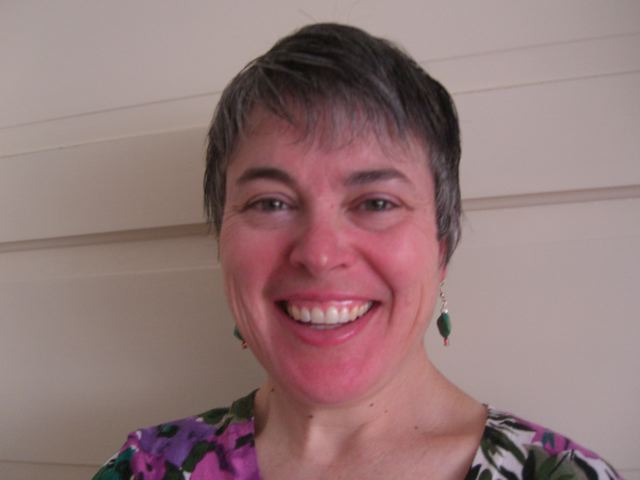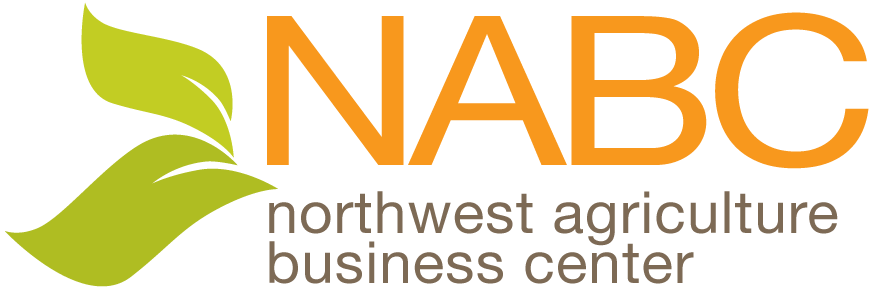Producer Member Highlight: Michele Catalano, Full Circle
 Michele Catalano is the Site Sales & Community Relations of Full Circle, a leading organic produce and artisan food provider located in Carnation, WA. Full Circle is a big proponent of making fresh, local, healthful food available to, and accessible by, seniors. Because of this, Michele, and Bill Brown, Full Circle’s Allocation & Sales Manager, were quick to jump on board with PSFN’s Farm to Table program which will connect local growers with senior meal programs. PSFN Farm to Community Coordinator, Emma Brewster, chatted with Michele last week about Full Circle’s role in this exciting new project.
Michele Catalano is the Site Sales & Community Relations of Full Circle, a leading organic produce and artisan food provider located in Carnation, WA. Full Circle is a big proponent of making fresh, local, healthful food available to, and accessible by, seniors. Because of this, Michele, and Bill Brown, Full Circle’s Allocation & Sales Manager, were quick to jump on board with PSFN’s Farm to Table program which will connect local growers with senior meal programs. PSFN Farm to Community Coordinator, Emma Brewster, chatted with Michele last week about Full Circle’s role in this exciting new project.
Full Circle Farm is a big name in farming in this region, and has become a big part of the Seattle area community. There’s much more to Full Circle than just the food, though. How would you describe Full Circle’s greater niche or role (or ideal role) in the communities it touches?
Full Circle’s mission is to change the food system. We think it’s very important to consider the way we treat the land and the way we treat people. We are using organic and sustainable methods to produce certified organic food, ensuring the quality and integrity of everything we grow. In the end, it’s about making healthy organic food more accessible to more people. It is a big goal, but through our farm and our partners we are working to make our goal a reality. We strive to create a business that works in partnership with the farms we procure produce from and the communities we bring our food to.
What was your background before coming to Full Circle?
I’ve worked in agriculture since 1998. For eight years I was Program Manager of the Pike Place Market Basket CSA program [This was a local CSA program which included a project that catered to seniors. It involved baskets of produce going to consumers at delivery locations and evolved into a combination of baskets with home-delivered meals, baskets picked up at drop sites, and local food incorporated into senior meal sites]. That was a cooperative CSA program – not a farm itself but we worked with several dozen different growers. There, I learned how to work with farmers and how to organize and run the logistics of a produce delivery program. One of the most important aspects of that position was the interaction with the members of Market Basket CSA: learning about their understanding of eating local, eating seasonal, what it means to be organic, and their knowledge of food politics. There’s a continuum people are on as they learn about organics and choose to eat more whole foods, including fresh vegetables. You could think of CSA members as kindergartners: overloading them with policy information won’t help them figure out what to do with the kale in their basket. Something simpler, though – something that has a face on it, a farm associated with it, is a more sure way to tell them that it’s something that is healthy and good. Some members may be curious about what goes on behind that, but for the most part people try a CSA-type program as a lifestyle or health choice or as a way to improve the environment.
From your experience, for both social and health reasons, why do you think seniors are an important group to access?
One thing I learned at Pike Place was that seniors are focused on their health and will seek out farm fresh fruits and vegetables. Older generations grew up eating directly from the farm, and we would get feedback about their experiences growing up on farms or shopping at Pike Place. It is a joy for them to get fresh foods and connect directly with farmers again. Any time we can reach seniors with healthy food it’s a really positive thing, with great memory connections for them. Many seniors who grew up in the custom of having healthy farm fresh food choices are challenged by making the adjustment to meal programs . As we all continue to age and begin participating in meal programs at senior centers or assisted living, there will hopefully continue to be a growing demand for healthy food choices. This may be the case especially for baby boomers.
Full Circle jumped on board with PSFN’s Farm to Table Project right away. Why were you so eager to be part of this project?
For me personally it’s because of my past involvement with programs like the Senior CSA. Pike Place no longer operates that program, and while there are several alternatives in our community such as senior farmers market vouchers, I’ve always felt that a direct meal program had more reach and better nutritional benefits than a voucher program. Full Circle wants to be involved in the community and support programs such as farm to school programs and initiatives like PSFN’s. Because we’re able to farm year-round we have an opportunity to participate in programs like this and to encourage other growers to participate through our example.
As your Farm to Table program grows and is successful we’d like to be able to help out in other ways. We will watch what happens and try to do even more in the future. We consider it good business to help you get started, and again, there’s something to be said for leading by example.
Aside from the Farm to Table project, what are you excited about in the upcoming season? Any new products, events, or other projects?
Full Circle is expanding into additional counties and areas. I’m excited about bringing Full Circle to places where we’re unknown, and encouraging people to live the good food life. Internally, we’re continuing to grow our Green Grocer program, offering our members a wide variety of artisan groceries. We’re excited to be helping with projects like yours in the greater community, both in our immediate area or in other areas we touch. We’re also developing a more organized donation program to support events with fresh produce or gift certificates,.
For more information on Full Circle, visit their website at www.fullcirclefarm.com
For more information on the PSFN Farm to Table project and if your farm might be a good fit, contact Karen Mauden, Farm to Table Coordinator at 425-466-8722; karen@agbizcenter.org
